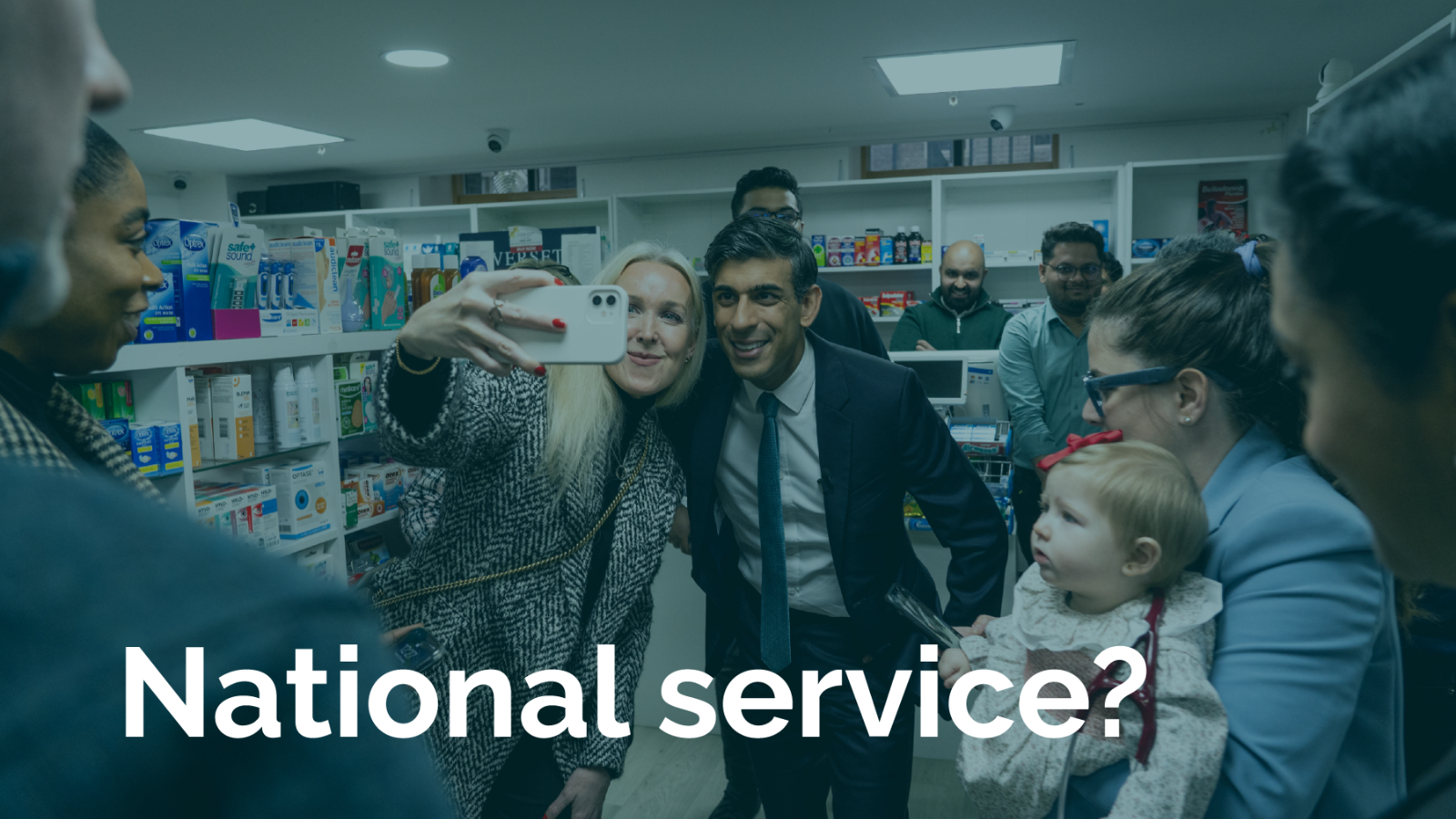National Service?

- by Hannah Paylor, Carnegie UK
- 27 May 2024
- 3 minute read
Rishi Sunak taking a selfie in a pharmacy. Picture by The Conservative Party. Carnegie UK green colour tint added plus the name of our blog: National Service?
When I was a student, I worked.
I heard Brown Eyed Girl, Proud Mary, and Auld Lang Syne multiple times a week during 15 hour long shifts waitressing at weddings. I also mastered the art of a diplomatic email when servicing the “online help” for a parcel company.
I volunteered too: most memorably cleaning the long-drop loos at Glastonbury for WaterAid during one of its wettest and muddiest years, and when 200,000 people woke on a Sunday morning in June 2016 to the result of the Brexit referendum. The weather mirrored the collective mood.
As the UK gears up for another important political event, Rishi Sunak and the Conservatives have just announced plans for mandatory national service for eighteen year-olds if they win the election. The scheme would aim to give young people a “renewed sense of pride”, a “shared sense of purpose” and “unite society in an increasingly uncertain world”. Young people would be able to choose between a full-time placement in the armed forces, or spending one weekend a month for a year volunteering in their community. This might include helping local fire, police and NHS services, as well as charities tackling loneliness and supporting older and isolated people.
The Conservatives are right to focus on the wellbeing of young people. Our Life in the UK index – the largest independent study of collective wellbeing in the UK – found an alarming gap between the life experience of young people and older people up and down the country. Based on a survey of nearly 7000 people, we found that younger age groups have particularly low levels of trust: in government, in political leaders, in social media. They also report powerlessness in influencing or contributing to the decisions that impact their lives.
I hear about this too as a trustee of includem, a Scottish charity working with vulnerable children and young people. The strain on wellbeing is evident in the increased numbers of young people and families engaging with their services, and the number of calls made to their emergency helpline out of hours.
In many ways, young people have already done a national service. Those turning eighteen next year were just thirteen during the COVID pandemic, when schools and support services were closed, and when they were prevented from seeing their friends and wider family. The impact of this on youth mental health is widely reported.
For me – like many people living in the UK – working as a young adult was mandatory to have a decent minimum living standard and support myself through education and university. But there are also young people unable to work or already doing unpaid work, for example as young carers. The announcement about National Service this weekend demonstrates why the incoming government needs to spend time in communities, engaging with the realities of people’s lives. Carnegie UK’s work with the Poverty Truth Network has highlighted why deep listening is key to solving our problems.
After this general election, any incoming government should work to close the gap between age groups: by delivering policies designed with the people they aim to support, and by ending the use of divisive rhetoric that frames young people as workshy or ‘living in their own bubble’ when the evidence suggests that it is younger demographics who are at the sharp end of political decisions.
Help us make the case for wellbeing policy
Keep in touch with Carnegie UK’s research and activities. Learn more about ways to get involved with our work.
"*" indicates required fields
